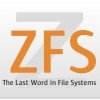You are here: Home > Rick van Hattem

Posted on 2015-06-09
by Rick van Hattem+
in automation, Hackintosh, os x, shell
When working at multiple computers during the day there are a few methods of syncing your work. Using something like unison to share the actual code, or just work on the computer remotely through ssh. Since one of my current clients has a few vagrant boxes which are less than trivial to set up and […]
Posted on 2015-03-01
by Rick van Hattem+
in automation, os x, shell
Since I regularly work on servers with self-signed certificates it’s been quite the hassle to whitelist them properly under OS X. Why Chrome doesn’t use a system comparable to Firefox is beyond me, but this script makes it fairly manageable. Do note that the certificate still needs to be valid in terms of hostname and […]
Posted on 2015-02-17
by Rick van Hattem+
in python, shell
Recently I’ve had to adjust a bunch of my dotfiles to support some old (Centos 5) systems which means that I am using a Vim that has Python 2.4 build in… needless to say, it breaks some of my dotfiles 😉 So here’s some tips on patching Vim version issues. First, checking if you have […]

Posted on 2015-02-09
by Rick van Hattem+
in Hackintosh, os x
Step 1: Creating a bootable USB stick Create a USB installer using Unibeast, the tutorial at Tonymaxc86 should do the trick. Follow steps 1, 2 and 3. Step 2: Modify the setup using Multibeast Download Multibeast from Tonymacx86 and use the following config: [xml]MultiBeast Configuration – 2015-02-09 04:53:52 —————————————————————– Quick Start > DSDT Free Drivers […]

Posted on 2015-01-28
by Rick van Hattem+
in numpy, python
For issues and/or questions, create an issue on Github: WoLpH/numpy-stl issues As a followup of my earlier article about reading and writing STL files with Numpy, I’ve created a library that can be used easily to read, modify and write STL files in both binary and ascii format. The library automatically detects whether your file […]

Posted on 2014-10-11
by Rick van Hattem+
in python
I’ve since written a library to replace this script and add more functionality such as reading/writing both binary and ascii STL files. See the blog post here After seeing Sukhbinder’s implementation of reading STL files with Numpy I thought it would be a nice thing to have a simple STL class to both read and […]

Posted on 2014-05-08
by Rick van Hattem+
in os x
The Apple Time Machine service makes fairly nice backups using hard links and everything, but if you need to somehow modify the backups yourself to remove some obsolete files (which take up a lot of diskspace for example) you’re pretty much out of luck the normal way. Removing the ACL’s and modifying the access rights […]

Posted on 2014-03-16
by Rick van Hattem+
in automation, os x, python, zfs
Since I see regular corruption and filesystem errors on my HFS+ partitions it seemed time to give ZFS on OS X a try. Since there are several ZFS implementations for OS X available you can choose the one you feel most confident that will work. Regardless… here is the script I wrote to automate the […]

Posted on 2014-03-15
by Rick van Hattem+
in automation, awk, shell
Just a collection of a bit of sh/bash/awk/zsh scripts to make your life in the shell easier 🙂 Over time I might add some more, but in the mean time don’t forget to checkout my Github Gists where a few of these are: Wolph’s gists Also, my dotfiles collection could be useful here 🙂 Little […]

Posted on 2014-01-29
by Rick van Hattem+
in django, jinja2, python, web
In some cases it can be useful to enable Django tags within your Jinja2 templates, for example… when you are converting your templates but still have some legacy tags/filters that don’t support Jinja2 or if you are using a project without Jinja2 support. Luckily, that’s not too difficult to achieve with Jinja2, actually a lot […]









Recent Comments